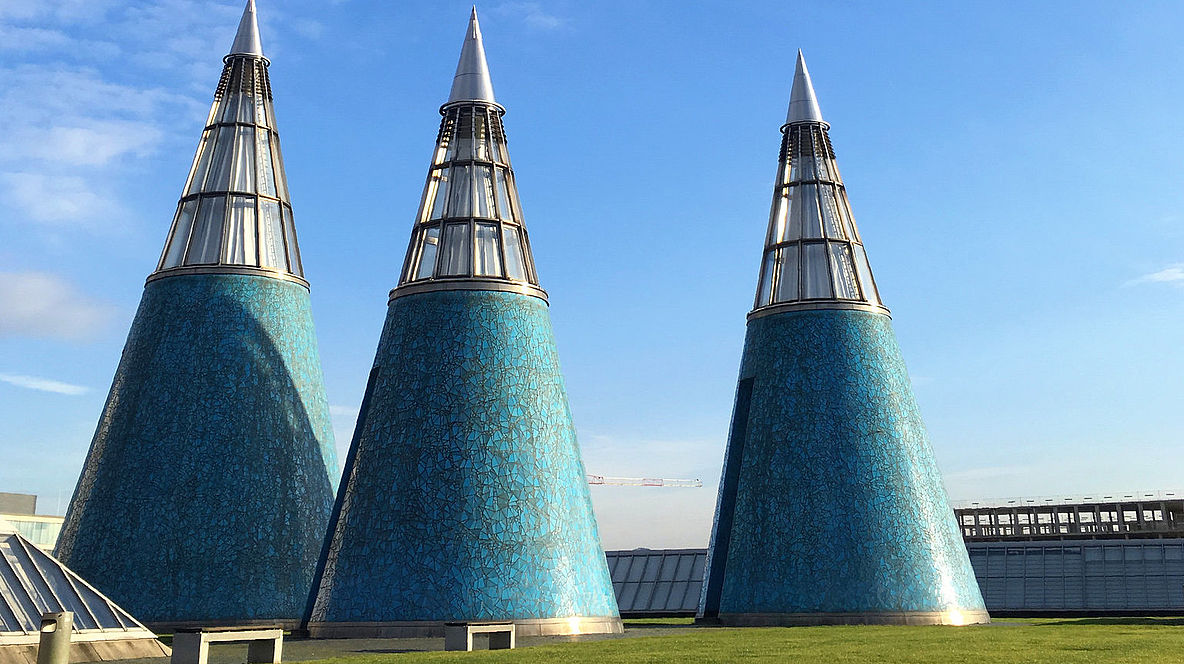Museums democratise by sortition

How can museums become more democratic? To answer this question, the Bundeskunsthalle (Federal Art Gallery) in Bonn and the Staatliche Kunstsammlungen Dresden (Dresden State Art Collections) in Germany organised citizens' assemblies in November 2023. Their aim is to reassess the significance of cultural institutions in terms of their role in society. This is the first time in the world that cultural institutions have used the instrument of randomised public participation.
The question posed to citizens in both cities was: "How should the institution (Bundeskunsthalle / Dresdner Kunstgewerbemuseum / SKD) develop in order to remain an important, welcoming, inclusive and diverse public space that enables social dialogue on the most pressing issues of these rapidly changing times?"
Museum as a space for dialogue and co-creation
Since its foundation, the Bundeskunsthalle in Bonn has pursued the goal of not only presenting art and culture, but also acting as a place for encounters, reflection and social activity. But how can the Bundeskunsthalle become a place that all people, regardless of their social or educational background, can perceive and use as a space for dialogue and co-creation? What opportunities are there for democratic participation in the museum? These questions were discussed at the Bonn Society Forum.
The Kunstgewerbemuseum (Museum of Decorative Arts) in Pillnitz Palace is part of the Dresden State Art Collections. The museum is endeavouring to view the ongoing process of repositioning itself as a place of encounter and co-design from the perspective of the public. To this end, a citizens' assembly was set up with randomly selected citizens from Dresden, Pirna, Oschatz and Radeberg. In addition to capturing the diversity of Bonn and Dresden in terms of age, gender, location, and socio-economic background, many people selected don’t often visit museums. They were able to share valuable insights that would be exceptionally difficult to capture otherwise.
Comprehensive list of recommendations
Each assembly consisted of 35 people. In their composition, they were a reflection of the respective city population. The participants came together for two weekends for their consultations. Experts provided them with the necessary knowledge.
These citizens’ assemblies have developed a comprehensive list of recommendations: from dedicated exhibitions for children, inclusivity trainings for museum staff, more seating in exhibition halls, simpler jargon-free language describing exhibitions, interactive exhibitions that engage visitors’ minds and bodies, co-creation processes where pieces are created together with other visitors and museum team members, to the opportunity to vote for what kinds of exhibitions people would like to see in Dresden, to a permanent Citizens’ Assembly to advise the Bundeskunsthalle on strategic decisions more systematically, and others.
These recommendations have been welcomed by museum directors. On 1 February 2024, the report of the Bundeskunsthalle Society Forum with 26 recommendations was presented to those responsible at the Bundeskunsthalle at a ceremony. The same will happen at the Staatliche Kunstsammlung Dresden in May 2024. The reports are to be taken into account by the management of the museums in future planning and decisions.
"We are seeking to enable social dialogue on relevant issues"
Eva Kraus, Director of the Bundeskhunstalle, commented on why she wanted to initiate a citizens’ assembly on democratising the museum: "We want the Bundeskunsthalle to become a more welcoming, inclusive, and diverse place, and are seeking to enable social dialogue on relevant issues, especially within these changing times. We have invited the citizens of Bonn - our neighbours - and engaged in a very fruitful process together. It has offered a great experience for all of us and we are very grateful to be able to learn from each other."
After having observed the Citizens’ Assembly in Dresden, Thomas A. Geisler, Director of the Kunstgewerbemuseum, said: “Lately a lot has been debated in theory about the democratisation of museums as systems. Experiencing a Citizen‘s Assembly in real-time opens up ways forward for the institution, as well as the Assembly Members, who experienced the museum as a place of self-empowerment.”
Democracy exhibition
An exhibition on the history and future of democracy will then be shown in the two museums in Bonn and Dresden under the title "Join in - Shaping Democracy". The exhibition is scheduled to open in spring 2024 at the Bundeskunsthalle in Bonn and in 2025 at the Dresden Museum of Decorative Arts / SKD. It will show historical artefacts such as ballot papers, posters and parliamentary architecture. New ideas for more democracy will be explored and traditional forms of co-determination examined. The procedures and results of the citizens' assemblies will be presented in the exhibition.
“By learning what people really think about culture and the arts from citizens’ assemblies, cultural institutions like the Bundeskunsthalle in Bonn and SKD in Dresden have an opportunity to reinvent themselves for the 21st century as genuinely democratic and inclusive spaces,” said Alice Rawsthorn, award-winning design critic, DemocracyNext board member and author of Design as an Attitude.
Citizen deliberation can fit in cultural institutions
A newsletter from Democracy Next states: These assemblies were able to demonstrate that citizen deliberation can fit seamlessly in cultural institutions and they represent an exciting new avenue for museums, theatres, libraries, concert halls to directly and constructively involve the public they serve in taking decisions that shape the future of these institutions.
Both citizens' assemblies were initiated by the action institute "Democracy Next". The organisation was in the hands of the Nexus Institute. This included developing the concepts, chairing the sessions and moderating the discussions and outcomes. At the same time, an ongoing exchange between the two processes was ensured.
Read more: Democratising the Museum: Citizens' Assemblies in Bonn and Dresden